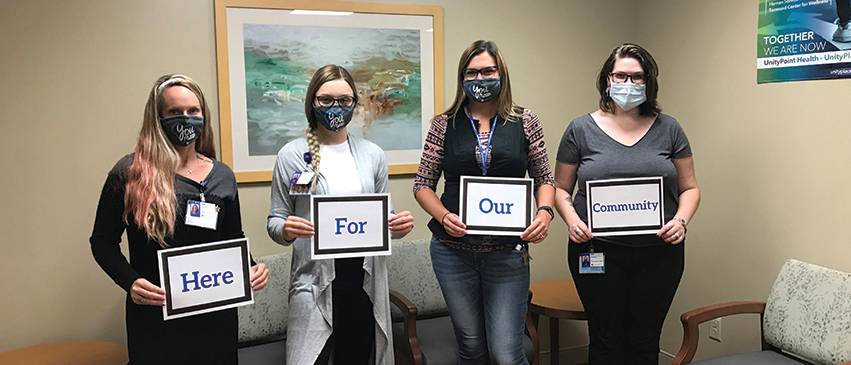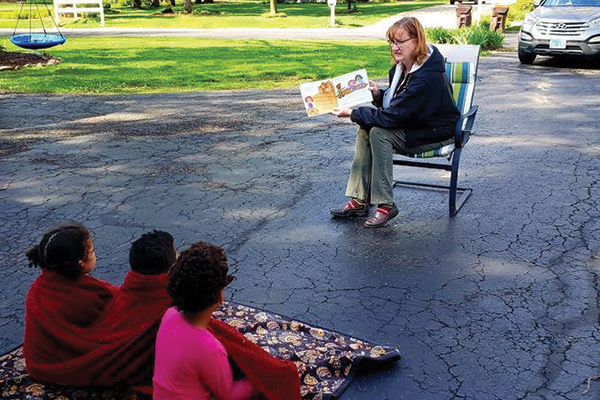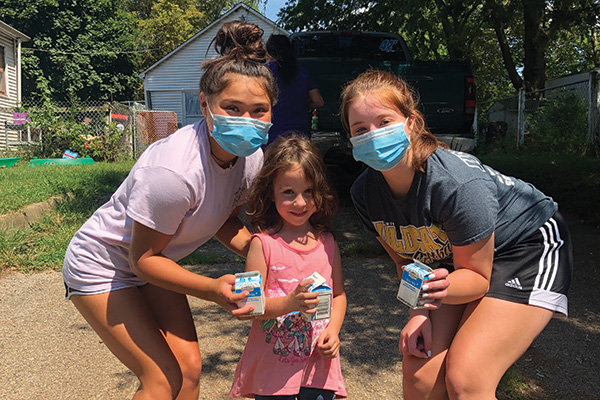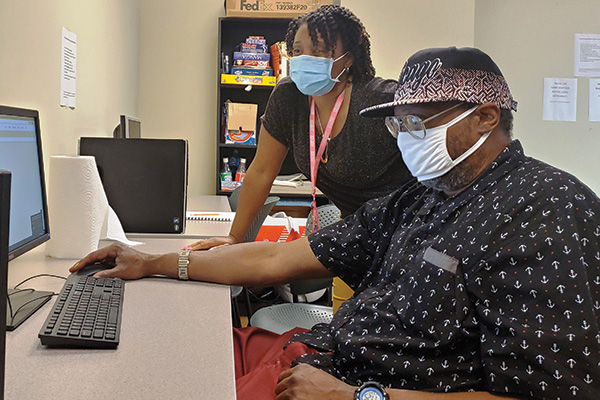
The big question on everyone’s mind is, “When can we get back to normal?” Certainly many of us would give almost anything to return to those pre-COVID-19 days. Our sobering reality, however, is that the virus continues to spread at a slow burn; coronavirus is here for the long haul. But there is hopeful news. One of the greatest assets in the Greater Peoria area is our highly regarded human service sector. Having adapted during the pandemic, we remain steadfast in our commitment to be on the frontlines, supporting both individuals and the community at large. We, too, are in it for the long haul.

Stretching to Respond
And with good reason. According to the Heart of Illinois United Way’s 2-1-1 data, food insecurity calls have increased 60 percent and domestic violence calls have gone up 40 percent—and human service agencies are stretching to respond to the increased need. For example, prior to COVID-19, the food pantry was the smallest program at Neighborhood House, serving 45 individuals every other week. Today, its capacity has increased more than 850 percent through weekly distributions, accounting for other pantries closing during COVID, and delivering boxes to the families of the children they serve.
When Peoria Public Schools announced plans for remote learning, Crittenton Centers knew that many parents would need care for their school-age children. They responded by turning one of their classrooms into a licensed classroom for children ages five to 12.
Local social service agencies who offer foster care, counseling, crisis intervention and child welfare services also face increased demand. Agencies like FamilyCore and the Center for Youth and Family Solutions had to quickly pivot to deliver these essential services remotely, in order to better protect the safety and wellbeing of children in the child welfare system. Doing so has required the purchase of additional technology, as caseworkers must perform their safety visits virtually. That means both the caseworker and the family must have the necessary technology, since ensuring child safety cannot be placed on hold.

Maintaining a Foundation
Of grave concern is how the pandemic has created a health and economic environment that is rapidly destabilizing the foundation for our community members. These impacts are intensified for people who were already economically vulnerable prior to the pandemic. There are now more people than ever who are unable to pay their rent due to lost income. That is why staples like Phoenix Community Development Services are so critical, as they focus on helping families maintain their housing stability and helping those who are experiencing homelessness minimize their risks.
According to the U.S. Census Bureau, one third of Americans are showing signs of clinical depression and anxiety—and this has been amplified during the pandemic. Our community is fortunate to have UnityPoint Health – UnityPlace to support those with mental health and substance abuse disorders. Their team continues to be committed to the safety and wellness of everyone by implementing best practices with personal protective equipment (PPE) and other safety measures.
During these unprecedented times, we are also fortunate to have the medical expertise of Heartland Health Services. With the support of Rep. Jehan Gordon-Booth and in collaboration with the Illinois Primary Health Care Association and State of Illinois, HHS was able to establish four COVID test collection sites in Peoria and Pekin, located primarily in areas of health disparities. As of October 15, the health center had collected 19,449 specimens, which has positively impacted the bigger health picture for our community on mitigation efforts, helping investigators characterize the prevalence, spread and contagiousness of the disease.

The Costs of Essential Services
As our human service organizations continue to pivot in their delivery of essential services, they are incurring additional costs by doing so. The purchase of PPE equipment, needed technologies, and redesigned or additional office space—all the things necessary to create a safe environment during COVID—has taken a toll on many organizations’ financial health. With most signature fundraising events canceled, these vital agencies are having to make tough financial decisions.
There are ways you can continue to support the human service sector in order to help them remain financially strong:
- Donate to your favorite human service organization the same amount you would have paid for a ticket to their signature event, and what you may have spent at their silent or live auction.
- Engage in their social media activity by liking/loving and sharing their posts to help create additional awareness.
- Donate PPE equipment, technology or other resources to your favorite organization.
Remember, investing in the well-being of central Illinois requires everyone—and everyone benefits. Join us in building a better region for the long haul. PM
- Log in to post comments

